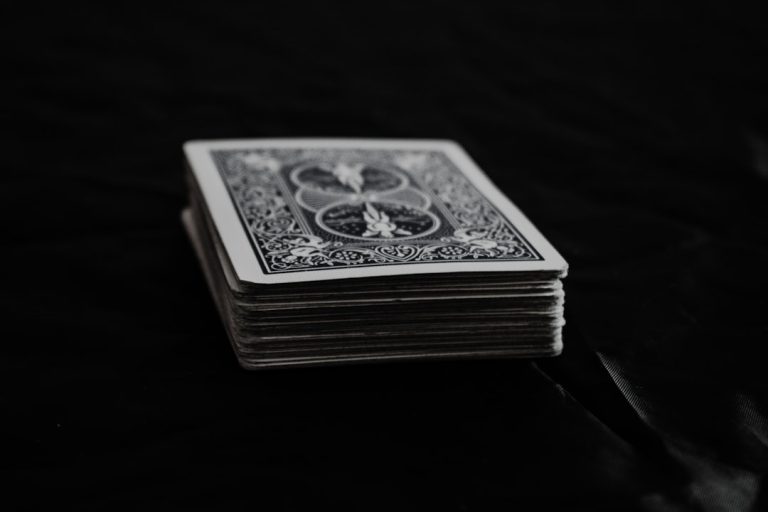7 Rummy Tips for Winning Big
Globally, rummy is a popular card game that is played by many. A standard 52-card deck is used, and two to six players can participate. Forming sets (three or four cards of the same rank) and runs (three or more consecutive cards of the same suit) from the cards in one’s hand and laying them on the table is the aim of the game. Each player receives a hand of cards at the start of the game.
Key Takeaways
- Understanding the rules of the game is essential for success in playing.
- Mastering the art of discarding is crucial for maintaining a strong hand.
- Paying attention to your opponents’ moves can give you valuable insight into their strategies.
- Forming melds strategically can help you create winning combinations.
- Keeping track of the discard pile is important for making informed decisions.
- Knowing when to drop out is a key skill in avoiding unnecessary losses.
- Staying calm and focused is essential for making rational and strategic decisions during the game.
The top card is turned face-up to begin the discard pile, and the remaining cards make up the draw pile. Players alternately remove one card from their hand & draw from either pile. A player declares “Rummy” to win when they have formed all of their cards into sets and run. There are many different variations of rummy, such as Gin Rummy, Indian Rummy, and Rummikub, each with its own set of rules and features.
Since variations can differ greatly, it is important to become familiar with the specific rules of the variation being played. Creating winning strategies, predicting opponent movements, and increasing one’s chances of winning all depend on having a solid understanding of the rules. For both new and seasoned players to succeed in rummy, knowing the rules is essential. Removing Cards with High Value.
Eliminating valuable cards that are unlikely to form sets or runs in your hand is a crucial discarding tactic. You can keep your opponents from using these cards against you by discarding them. Also, if an opponent declares “Rummy,” you can minimize the effect on your score by discarding high-value cards, which will lower your total point count. Analyzing Your Rivals.
| Tips | Description |
|---|---|
| Understand the Rules | Make sure you fully understand the rules of the game before playing. |
| Focus on Runs | Try to form sequences of consecutive cards to increase your chances of winning. |
| Discard High Value Cards | Get rid of high value cards that are not part of a sequence to reduce your points. |
| Observe Opponent’s Moves | Pay attention to the cards your opponents are picking and discarding to understand their strategy. |
| Be Mindful of Jokers | Use jokers strategically to complete sequences and sets. |
| Plan Your Moves | Think ahead and plan your moves to maximize your chances of winning. |
| Stay Calm and Patient | Keep a cool head and be patient, as winning big in rummy often requires time and strategy. |
Observing the cards your opponents are discarding and picking up is another crucial part of discarding. You can learn about their hand by watching how they move, and you can then modify your own strategy accordingly. If an opponent discards cards of a particular rank or suit repeatedly, for instance, you can deduce that they are not collecting those particular cards and modify your own discards accordingly. The Art of Discarding: A Mastery. It takes keen observation, quick thinking, and flexibility to become an expert at throwing away.
You can improve your chances of winning & obtain a big advantage in the game by mastering this skill. In order to play Rummy effectively, you must be aware of your opponents’ movements. You can obtain important insight into their hand by watching what they do, and you can then modify your own approach accordingly. The cards they are picking up and throwing away are an important thing to keep an eye out for. You can then modify your own discards & plays to thwart their plans by using this information to determine which sets or runs they might be attempting to form. Observing the movements of your opponents can also assist you in predicting their next moves and adjusting your own strategy accordingly.
Observing your opponents’ actions and body language during the game is a crucial part of keeping an eye on them. With their gestures and facial expressions, players frequently reveal small hints about their hand. To indicate the importance of a card in their hand, a player might, for instance, display joy or dismay when they pick it up. You can obtain useful knowledge about your opponents’ hands and utilize it to your advantage by being perceptive & aware of these cues.
Finally, observing your opponents’ moves is a crucial Rummy skill that can improve your chances of winning by enabling you to make wise decisions & predict their actions. Forming melds, also known as sets & runs, is a crucial Rummy move that calls for preparation & strategic thought. It’s crucial to take into account your opponents’ discarded cards in addition to the cards you have in your hand when creating melds.
You can strategically gather the cards you need to form melds while keeping your opponents from finishing their own sets & runs by keeping an eye on the cards that are in play. Concentrating on gathering low-value or common-suit cards—cards that are likely to be useful in multiple melds—is one tactic that works well. Knowing which cards to discard and which to hold onto is a crucial part of strategically creating melds. It might be wise to hold onto cards that are similar in rank or suit, for instance, in case you draw more of the same kind later on. However, it might be wise to discard cards that you don’t think will form melds in order to keep your opponents from using them against you.
You can make the most out of your hand and improve your chances of winning the game by strategically forming melds. An important Rummy skill that can help you gain a lot of understanding about the game is keeping track of the discard pile. You can learn which cards are out of play by keeping an eye on the cards your opponents have discarded; this will allow you to modify your own strategy accordingly. You can determine that high-value cards are less likely to be in your opponents’ hands by observing, for instance, that multiple of them have been discarded. You can then modify your own discards & plays accordingly.
Keeping an eye out for chances to retrieve valuable cards is a crucial part of monitoring the discard pile. During your turn, you can choose to deliberately pick up a card from the discard pile rather than drawing from the draw pile if you see one that would help you form a meld with it in your hands. By enabling you to gather the cards you require and keeping your rivals from doing the same, this can offer you a big advantage. In the end, being aware of the discard pile is an important ability that can improve your chances of winning rummy by enabling you to make wise decisions and predict the actions of your rivals.
Evaluate Your Hand. When a player in Rummy declares “Rummy” before any other player has, all of their cards must form sets & runs. If this happens, the game is over right away, and the remaining players lose any unmelded cards. It’s critical to determine if dropping out and losing fewer points is a more strategic move or if you can still make melds with the cards you still have in your hand.
Things to Think About. Your chances of making melds with the cards you still have in hand are an important consideration when determining whether to fold. It might make sense to drop out in order to reduce your point total if you have a number of high-value cards or cards that are unlikely to form melds. Also, dropping out can save you from earning extra points if an opponent has already declared “Rummy” and you have little chance of creating melds with your remaining cards.
Selective Absence. You can maximize your chances of success in subsequent rounds & reduce the negative effect on your score by strategically deciding when to drop out. This ability can significantly improve your overall performance & help you advance as a Rummy player. Maintaining composure and concentration is crucial for winning at Rummy since it enables you to make wise choices, adjust to shifting conditions, and enhance your overall performance.
Having a composed & concentrated attitude helps you play rummy more effectively. The game demands strategic thinking, flexibility, and mental agility. Remaining composed under duress allows you to make thoughtful, logical decisions instead of rushing into things or becoming overly emotional. Being flexible when the game conditions change is another crucial component of maintaining composure & concentration. With the cards being drawn from the draw pile and the actions of other players, rummy is a dynamic game where things can change quickly.
You can make strategic decisions that will increase your chances of success by remaining focused on the current game & making adjustments in response to new information as it becomes available. At the end of the day, being composed & concentrated is an essential Rummy skill that will enable you to make wise choices, adjust to shifting conditions, and ultimately enhance your overall performance in the game. To sum up, Rummy is a strategic and dynamic card game that calls for mental acuity, flexibility, and careful thought. You can raise your chances of winning and enhance your Rummy performance by comprehending the game’s rules, becoming skilled at discarding, observing your opponents’ movements, strategically forming melds, monitoring the discard pile, knowing when to strategically drop out, and maintaining composure and concentration throughout the game. Developing these abilities will help you win more Rummy games regardless of your level of experience by improving your capacity to make wise decisions, predict your opponents’ moves, and so on.
If you’re interested in learning more about the game of 7 rummy, you should check out this article on bc-sgame.com that provides a comprehensive overview of the rules and strategies for playing this popular card game. Whether you’re a beginner looking to get started or an experienced player looking to improve your skills, this article has everything you need to know about 7 rummy.
FAQs
What is 7 rummy?
7 rummy is a variation of the popular card game rummy, where the objective is to form sets and runs of cards in your hand.
How is 7 rummy played?
In 7 rummy, players are dealt 7 cards each and the remaining cards are placed face down on the table as the draw pile. Players take turns to draw a card from the draw pile or the discard pile, and then discard a card from their hand. The goal is to form sets and runs of cards and be the first to get rid of all the cards in your hand.
What are the rules of 7 rummy?
The basic rules of 7 rummy are similar to traditional rummy, with the main difference being the number of cards dealt to each player. Players must form sets of 3 or 4 cards of the same rank, or runs of 3 or more consecutive cards of the same suit.
How many players can play 7 rummy?
7 rummy can be played with 2 to 6 players.
Is 7 rummy a game of skill or luck?
7 rummy is a game that combines elements of skill and luck. While luck plays a role in the cards you are dealt, skill comes into play in terms of strategic card selection and knowing when to draw from the discard pile.
What is the objective of 7 rummy?
The objective of 7 rummy is to be the first player to form sets and runs of cards and get rid of all the cards in your hand.
Are there any variations of 7 rummy?
There are several variations of 7 rummy, including different rules for forming sets and runs, as well as variations in the number of cards dealt to each player.





